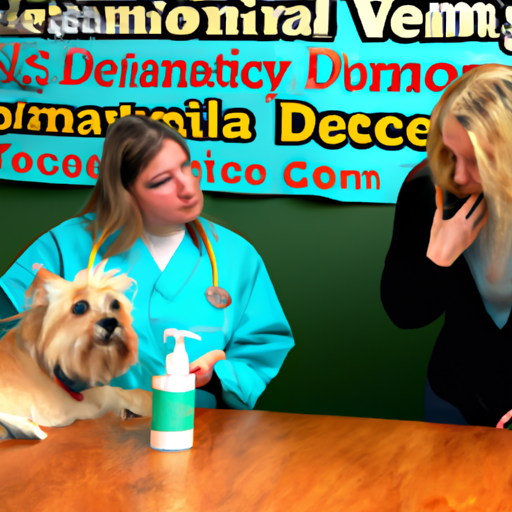If you’re a dog owner, you’ve probably seen your beloved pet suffering from itching at some point. It’s heart-wrenching to watch, and even more so when you don’t know how to help. This comprehensive guide is designed to help you understand the underlying causes of your dog’s itching and provide effective strategies to relieve their discomfort.
Table of Contents
1. Understanding the Causes of Itching in Dogs
2. Home Remedies for Dog Itching
3. When to See a Vet
4. Prevention Tips
5. Frequently Asked Questions
Key Takeaways
– Identify the cause of your dog’s itching
– Use home remedies for immediate relief
– Know when to seek professional help
– Learn how to prevent future itching episodes
Understanding the Causes of Itching in Dogs
It’s essential to understand why your dog is itching to provide appropriate relief. Common causes include:
- Fleas or ticks: These parasites can cause intense itching in dogs. Regularly check your dog’s fur for signs of these pests.
- Allergies: Dogs can be allergic to a range of substances, from certain foods to pollen, dust mites, or even some fabrics.
- Skin infections: Bacterial or fungal infections can cause itching and discomfort in dogs.
- Dry skin: Dry, flaky skin can cause itching, especially in colder months or in dogs who are bathed frequently.
Home Remedies for Dog Itching
Before resorting to medication, there are several home remedies that can provide immediate relief to your dog’s itching.
- Oatmeal bath: Oatmeal has natural anti-inflammatory properties that can soothe itchy skin. You can make an oatmeal bath at home by grinding plain oatmeal into a fine powder and mixing it with warm water.
- Coconut oil: Coconut oil is a natural moisturizer that can soothe dry, itchy skin. Simply rub a small amount onto your dog’s skin regularly.
- Aloe Vera: Just like for humans, Aloe Vera can provide relief for itchy skin in dogs. Apply the gel directly to the affected areas for immediate relief.
The American Kennel Club also recommends these remedies for dog itching. However, it’s essential to monitor your dog’s reaction to these treatments. If the itching persists or worsens, it may be time to consult a vet.
When to See a Vet
While home remedies can be effective for mild to moderate itching, severe or persistent itching may require professional care. If your dog’s itching is accompanied by other symptoms like redness, swelling, sores, or changes in behavior, it’s time to see a vet. The OneTopDog offers an excellent guide on when to seek professional help for dog itching.
Prevention Tips
Preventing itching in dogs is always better than treating it. Here are some tips to help prevent future itching episodes:
- Regular grooming: Regular baths with a gentle, hypoallergenic shampoo can help prevent skin issues.
- Flea and tick prevention: Regular use of flea and tick prevention products can help keep these pests at bay.
- Proper nutrition: A balanced diet rich in essential fatty acids can help keep your dog’s skin healthy and itch-free.
- Avoid allergens: If your dog has known allergies, try to minimize their exposure to these allergens.
Frequently Asked Questions
-
Can I use human anti-itch cream on my dog?
While some human products may be safe for dogs, others can be toxic. Always consult your vet before using a human product on your dog. -
How long does it take for dog itching to stop?
The duration of the itching depends on its cause. In the case of flea infestations, it may take a few days to weeks after treatment for the itching to completely stop. -
What can I give my dog to stop itching?
Over-the-counter antihistamines can sometimes provide temporary relief. However, it’s always best to consult a vet for persistent itching.
In conclusion, it’s essential to understand the cause of your dog’s itching to provide effective relief. Home remedies can help, but don’t hesitate to seek professional care if necessary. With proper care and prevention, you can help your furry friend live a comfortable, itch-free life.
For more detailed information on dog care and health, visit OneTopDog and their guide to dog skin conditions.



